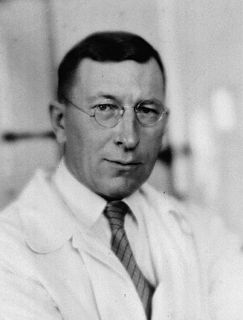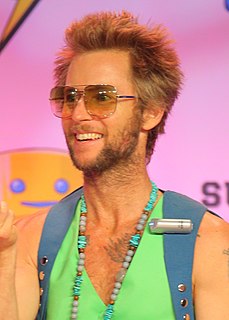A Quote by Fuller Albright
An intelligent patient, private or otherwise, to whom you have taken the trouble to explain the nature of the investigation, makes the best laboratory animal.
Quote Topics
Related Quotes
It was an extremely trying time for me. Best was still intimate with MacLeod and the others about the laboratory. I was out of the picture entirely. MacLeod had taken over the whole physiological investigation. Collip had taken over the biochemistry. Professor Graham and Dr. Campbell had taken over the whole clinical aspect of the investigation.
There is therefore no reason to put a limit to evolutionary possibility by taking our present organization or status of existence as final. The animal is a laboratory in which Nature has worked out man; man may very well be a laboratory in which she wills to work out superman, to disclose the soul as a divine being, to evolve a divine nature.
Man is the only animal who does not feel at home in nature, who can feel evicted from paradise, the only animal for whom his own existence is a problem that he has to solve and from which he cannot escape. He cannot go back to the prehuman state of harmony with nature, and he does not know where he will arrive if he goes forward. Man's existential contradiction results in a state of constant disequilibrium. This disequilibrium distinguishes him from the animal, which lives, as it were, in harmony with nature.
I look upon a good physician, not so properly as a servant to nature, as one, that is a counsellor and friendly assistant, who, in his patient's body, furthers those motions and other things, that he judges conducive to the welfare and recovery of it; but as to those, that he perceives likely to be hurtful, either by increasing the disease, or otherwise endangering the patient, he thinks it is his part to oppose or hinder, though nature do manifestly enough seem to endeavour the exercising or carrying on those hurtful motions.
We are the intelligent elite among animal life on earth and whatever our mistakes, [Earth] needs us. This may seem an odd statement after all that I have said about the way 20th century humans became almost a planetary disease organism. But it has taken [Earth] 2.5 billion years to evolve an animal that can think and communicate its thoughts. If we become extinct she has little chance of evolving another.
The usual sniggering examples of animal behaviour were brought in to explain cheating. Funny how the behaviour of shrews and gibbons is never used to explain table manners or road safety or gardening, only sex. Anyway, it was bad Darwinism. Taking the example of a monkey and applying it to yourself misses the point that animal behaviour is made for the benefit of the species, not as an excuse for the individual. Being incapable of sustaining a stable pair and supporting children is really not in the interests of our species. Neither is it really in the best interests of the philanderer.

































